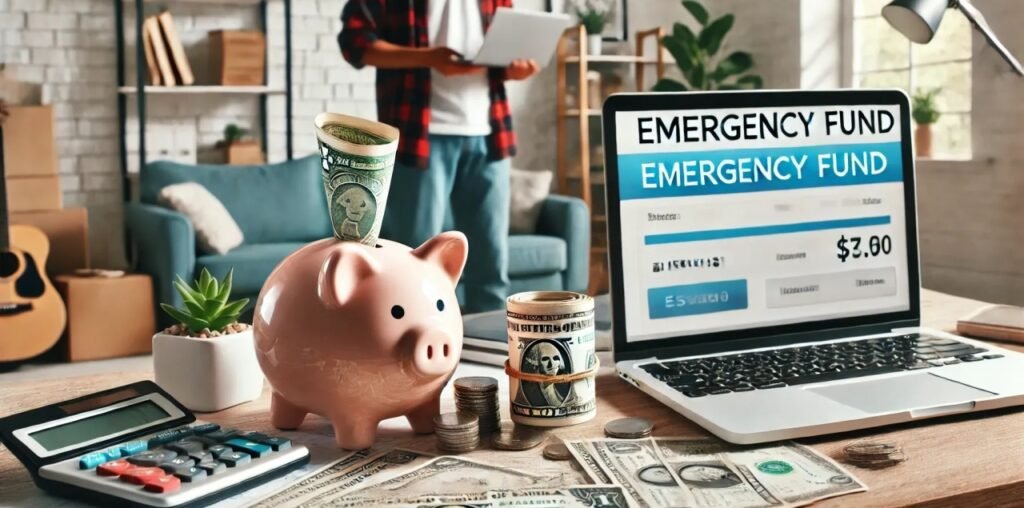Picture this: Your car breaks down, your roof starts leaking, or you suddenly face an unexpected medical expense. Without an emergency fund, situations like these can turn into full-blown financial crises. This is why building an emergency fund is one of the smartest things you can do for your financial health.
Why an Emergency Fund Matters
An emergency fund isn’t just money in the bank—it’s peace of mind. It protects you from going into debt when life throws you a curveball. Think of it as your financial cushion for life’s unexpected bumps.
Meet Mike: The Importance of an Emergency Fund
Mike, a freelance graphic designer, learned the hard way why an emergency fund is crucial. When his laptop broke, he didn’t have the $1,500 he needed to replace it. Without his laptop, he couldn’t work, which meant no income. Scrambling to cover the cost, he ended up maxing out his credit card and paying months of high-interest debt. If Mike had built an emergency fund, he could have replaced his laptop without financial stress.
How Much Should You Save?
- Start Small: Aim for $1,000 as your first milestone.
- Build Gradually: Ultimately, you should aim for 3–6 months’ worth of living expenses.
- Tailor It to Your Needs: If you’re self-employed or have irregular income, aim for 6–12 months of expenses.
Where to Keep Your Emergency Fund
- High-Yield Savings Account: Offers easy access and earns a little interest.
- Avoid Investments: Emergency funds should be liquid, so skip stocks or bonds.
The Pros and Cons of an Emergency Fund
Pros:
- Financial Security: Protects you from relying on debt.
- Peace of Mind: Reduces stress when emergencies arise.
- Flexibility: Allows you to handle unexpected expenses without derailing other financial goals.
Cons:
- Opportunity Cost: Money in a savings account earns less than it might in investments.
- Temptation to Spend: Having a large sum of accessible money can be tempting.
Pro Tip: Name your savings account “Emergency Fund” to remind yourself not to dip into it for non-emergencies.
Conclusion: A Foundation for the Future
Budgeting and building an emergency fund might not be the flashiest financial moves, but they’re the foundation of a healthy financial future. By taking control of your money and creating a safety net, you’re setting yourself up for success. Remember, every small step counts—start today, and future you will thank you.

